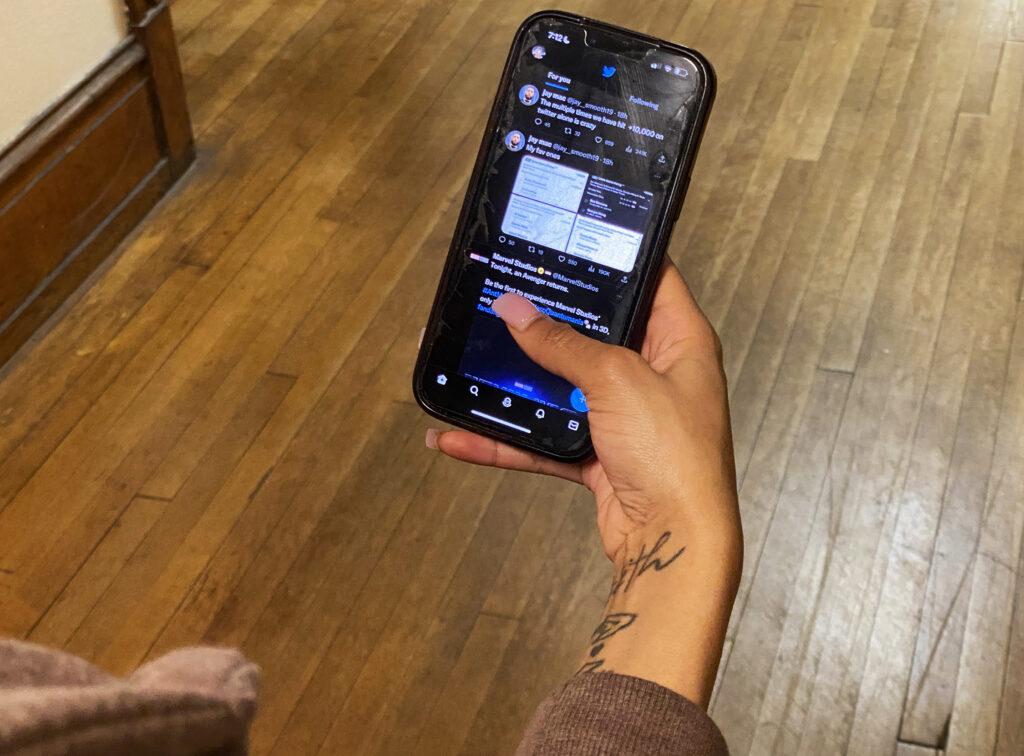
By Nina Payne
Trinity Times Correspondent
On just about any given day students can be seen walking along campus at Trinity Washington University while staring at their phones, often reading their feeds on Instagram, TikTok, Facebook or Twitter.
Though these social media platforms offer them a connection to their family, friends and news from the world, many say it also provokes anxiety, feelings of inadequacy and depression.
“I find myself comparing my life to other people’s lives,” said Shakera Hunter, a nursing major in her junior year at Trinity. “Not in a jealous way, but more so it makes me think that I am not as far ahead in life as I should be.”
About 84% of U.S. college age students between the ages of 18 and 29 consume social media, according to a 2021 study by the Pew Research Center.
Recent studies have shown that using social media platforms can have detrimental effects on the phycological health of its users, but the extent of the impact on the public is yet to be fully understood, according to a 2020 report by the National Institutes of Health.
Several Trinity students told the Trinity Times the various social media platforms offer them a link to the outside world, insight to how their peers and family are navigating life and an opportunity to stay in touch with their loved ones during everyone’s busy lives.
However, they also say these same social media platforms sometimes substitute personal interaction, make them feel negatively judged by their peers and rob them of valuable time that could be devoted to their schoolwork.
Daezanae Williams, a senior studying criminal justice at Trinity, says a lot of the social media content she devours throughout the day can make her feel like she is not in the place that she should be.
Seeing content creators who are the same age doing things that may not be achievable has had a negative impact on her mental health, Williams said.
It can also be a distraction for her, as she scrolls on social media for hours without realizing it, when she could have been finishing an assignment for one of her classes.
It’s already hard to balance a social life with school and work, Hunter said, and “seeing people on Instagram (seemingly) being able to balance both so well can get me feeling a little down sometimes because I often wonder why it can be so hard for me to do the same.”
She believes this frequently causes her to overthink her life, which then negatively impacts her schoolwork and eventually her grades.
Officials at the American Addiction Centers stress that people can also become addicted to social media and suggest a variety of methods to reduce social media consumption, such as creating time slots to view the platforms and increasing personal interactions socially.
Hunter said she tries to be mindful of her social media consumption and tries to stay connected with people on social media who spread positive energy.
Williams also said she tries to focus on the positive side of social media.
Social media gives an introvert like Williams the communication she craves in her life, so she tries to stay connected mainly with friends and family on those platforms to remain positive.
Though health experts stressed that cutting out social media entirely isn’t a realistic answer for most college students, they have suggested that it’s important for them to remain mindful in how they use the platforms to safeguard their mental health.